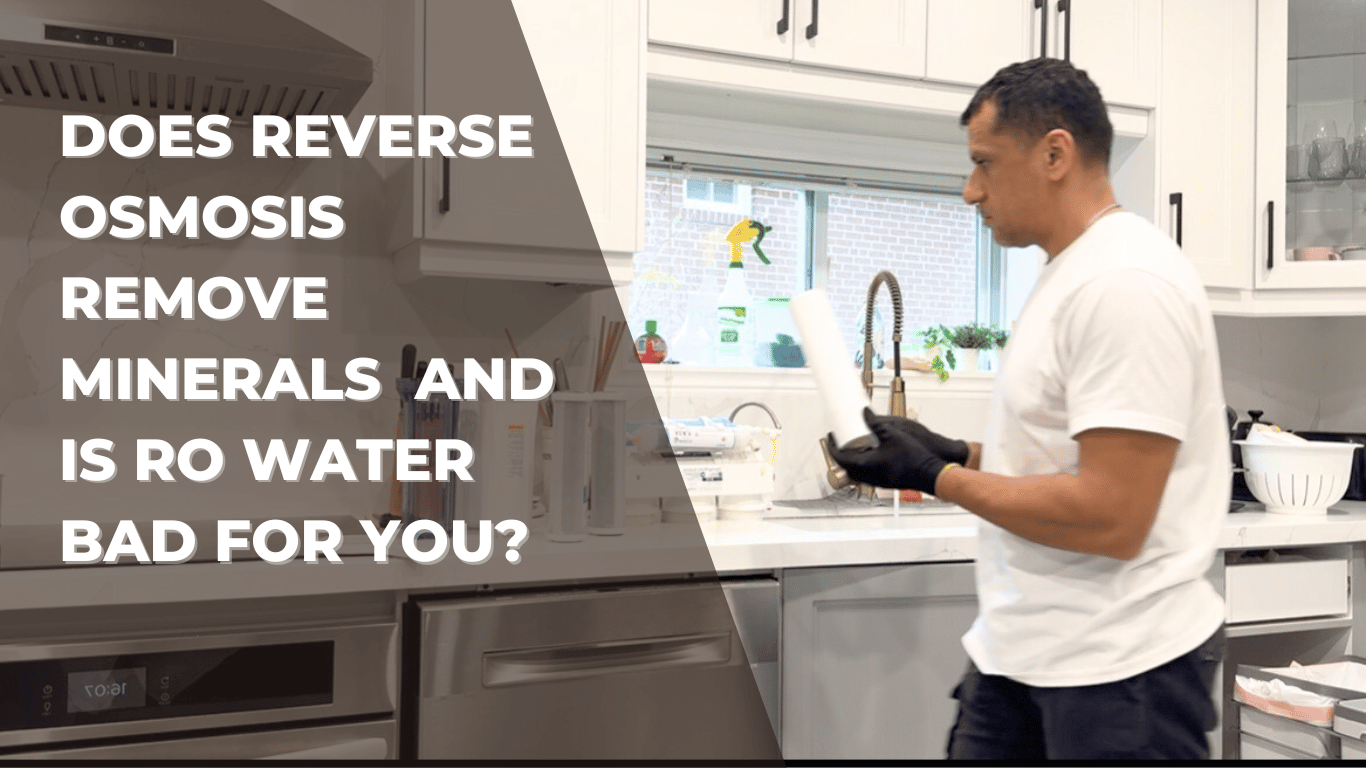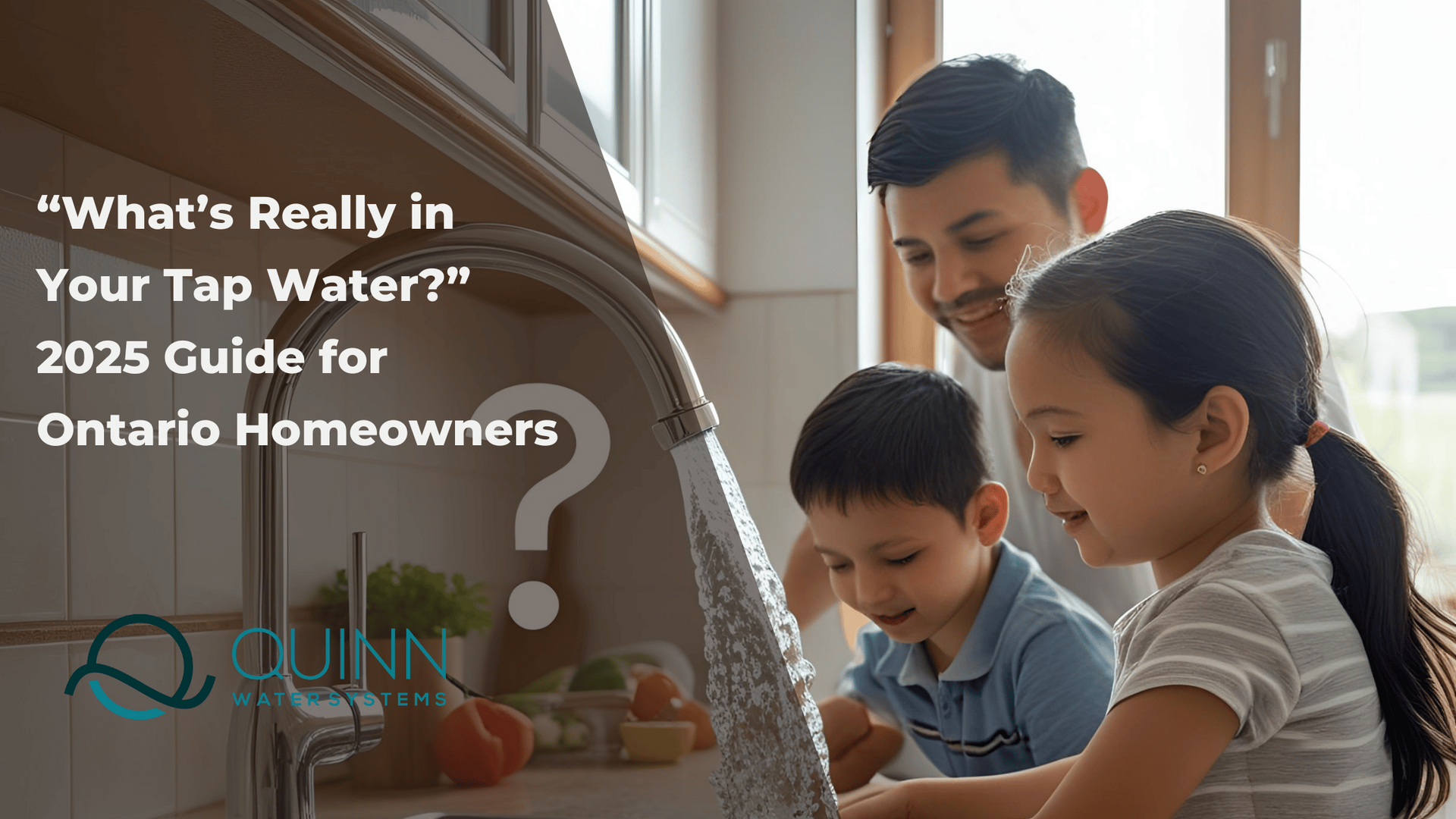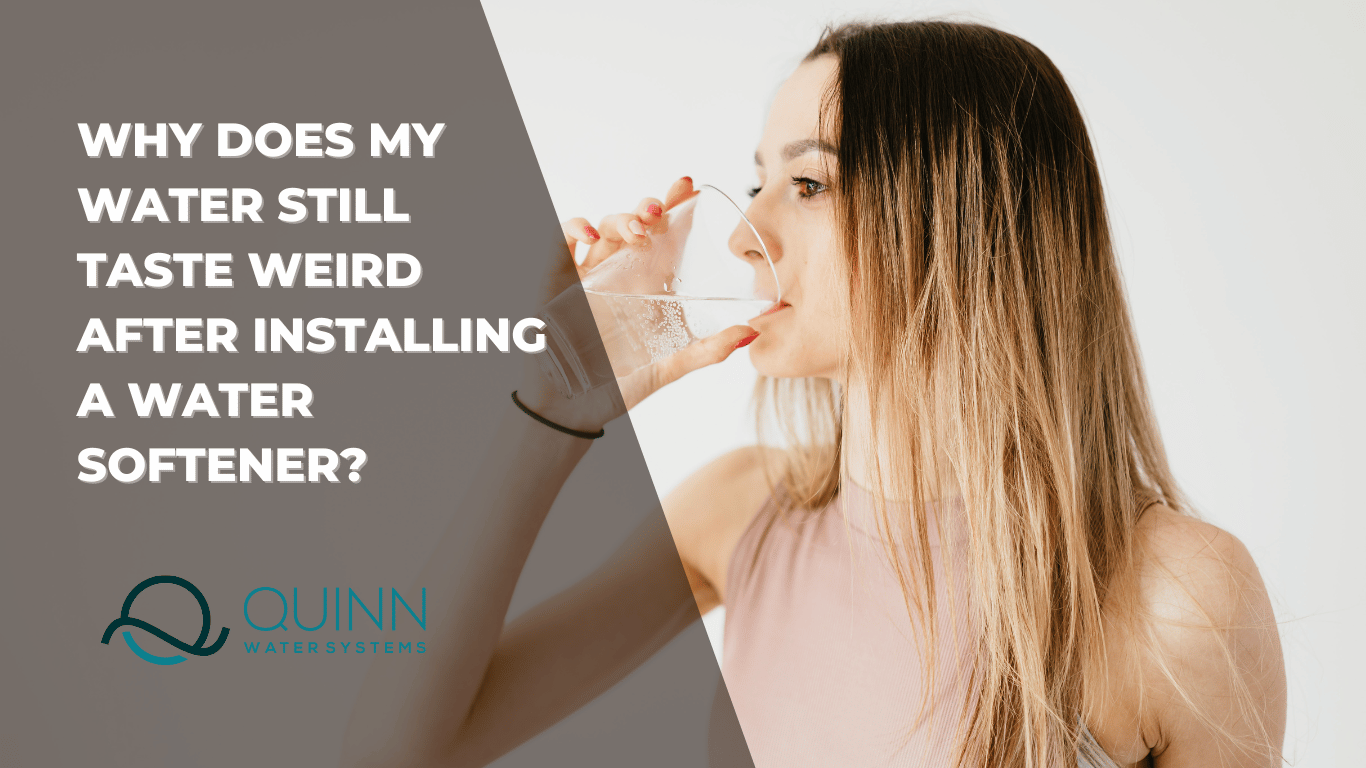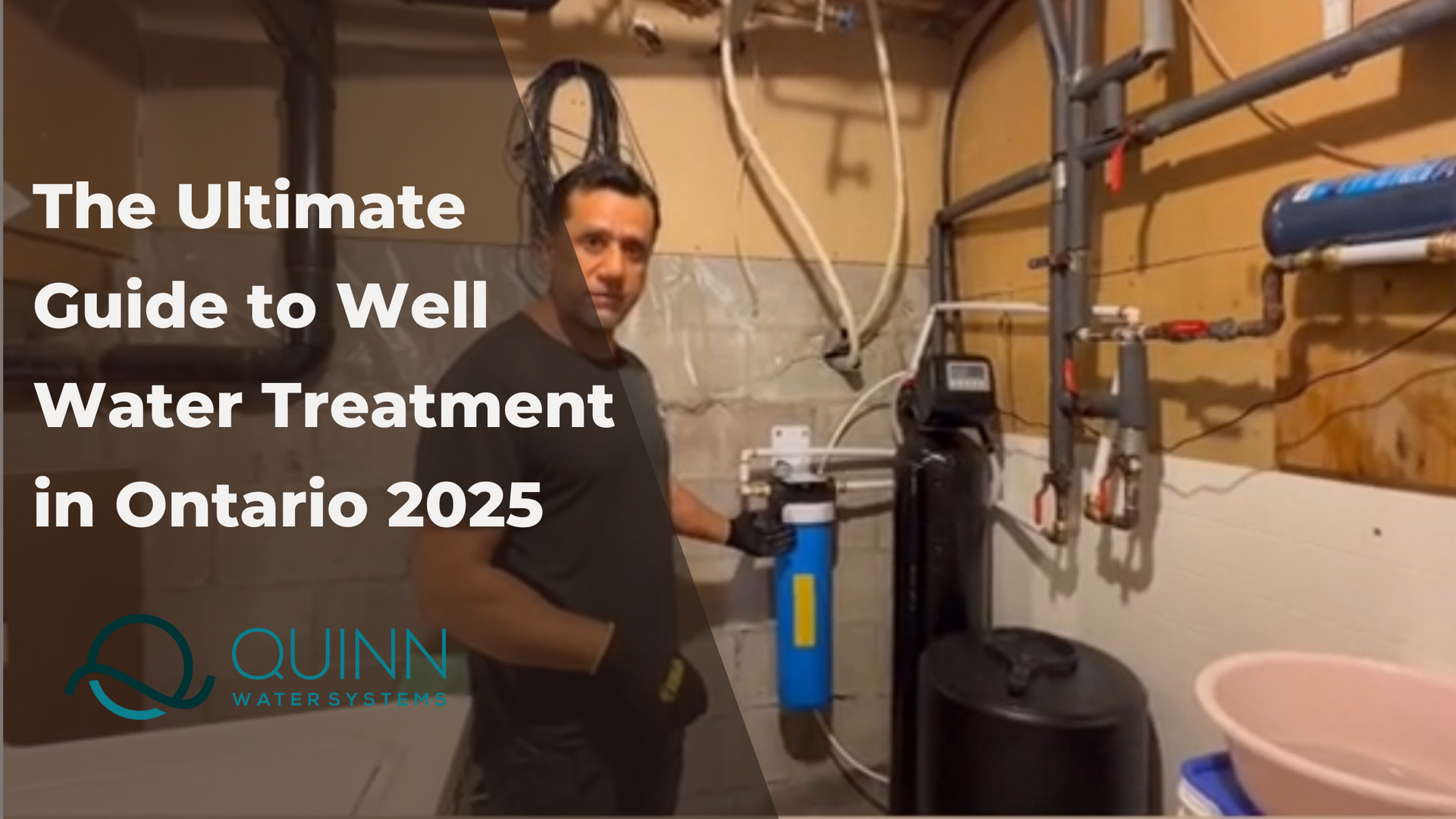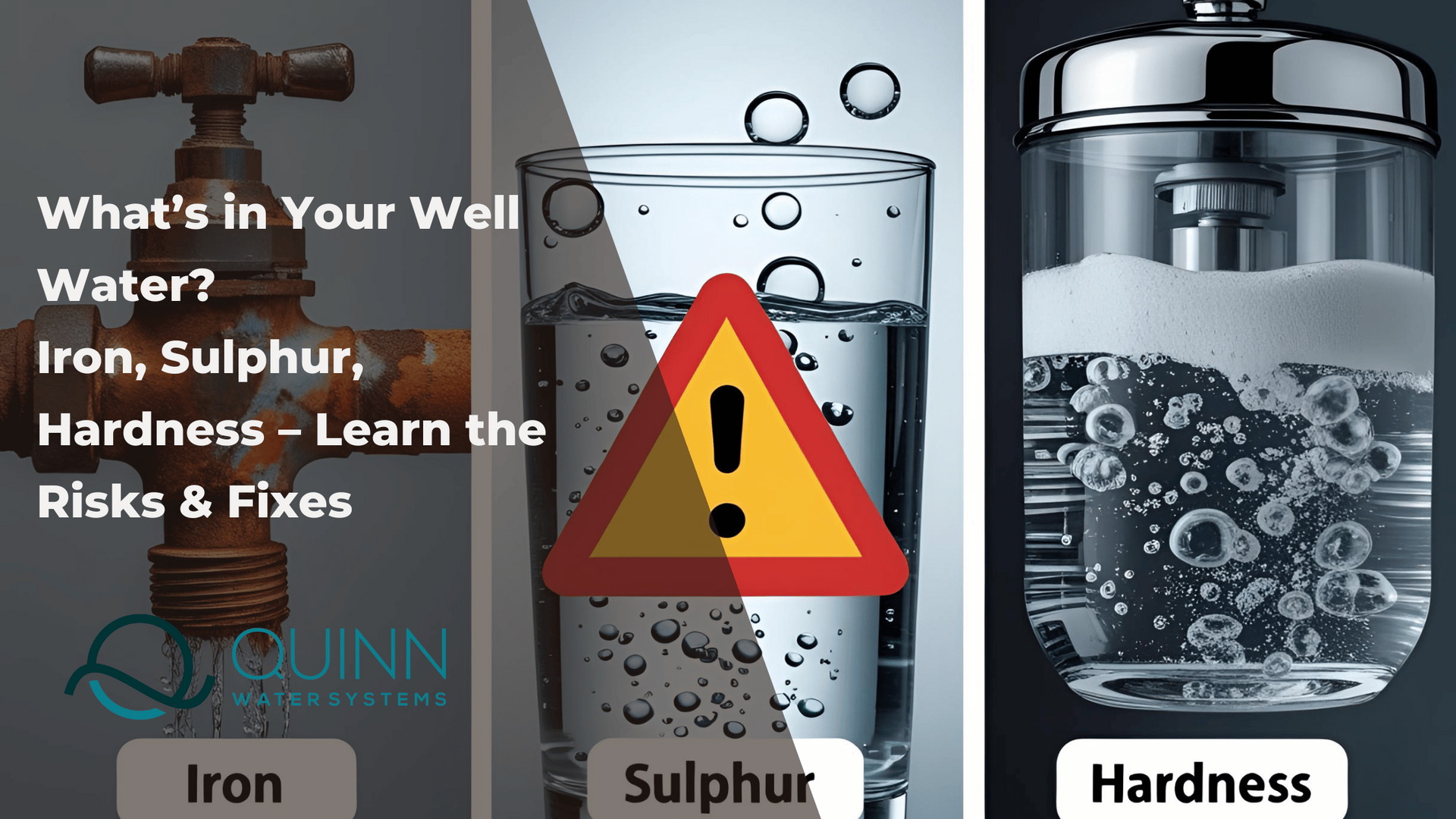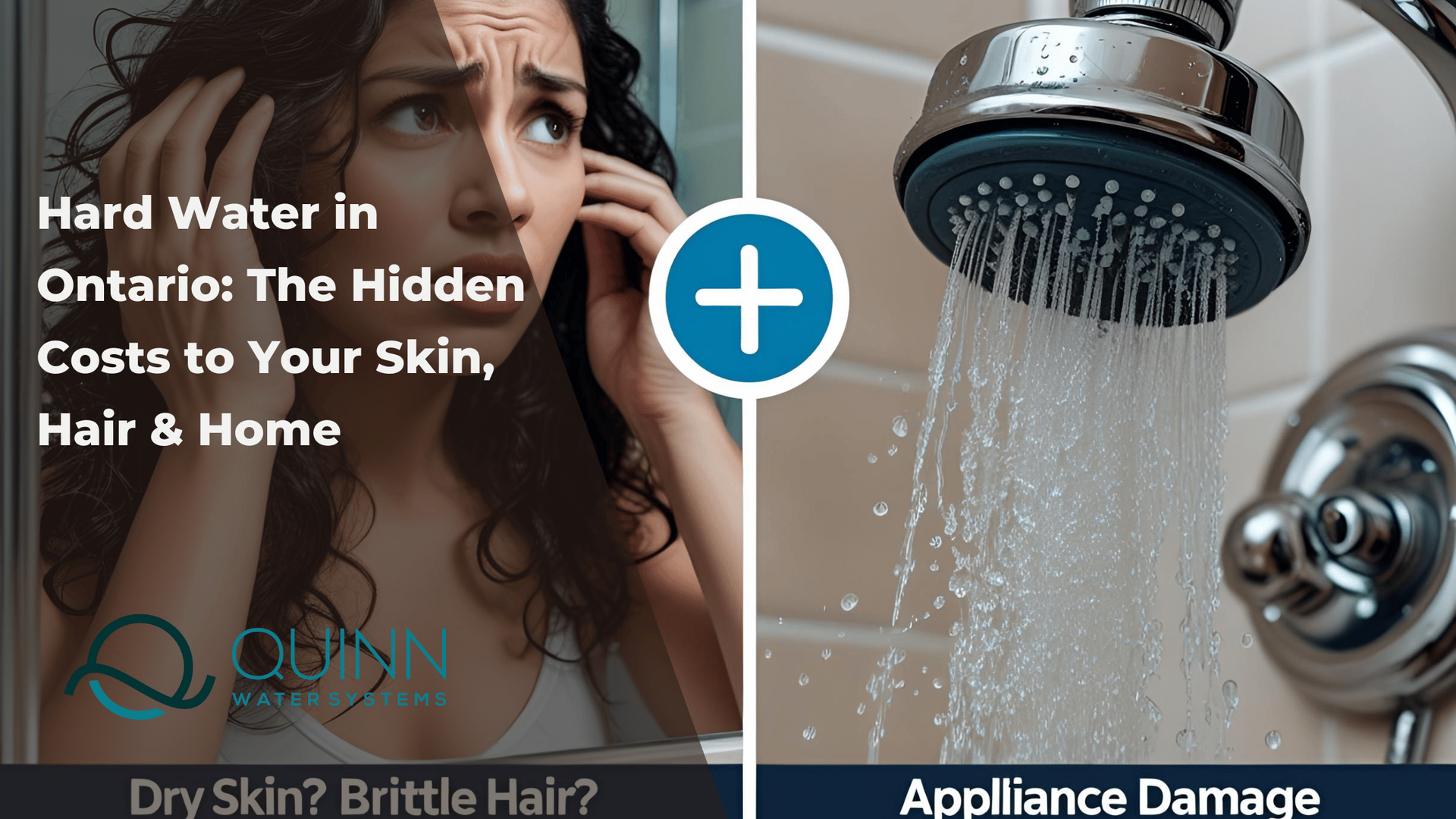How to Maintain Your Water Softener in Ontario: Salt Tips Every Homeowner Should Know
Optimizing Water Softener Performance: Essential Salt Maintenance Tips from Quinn Water Systems
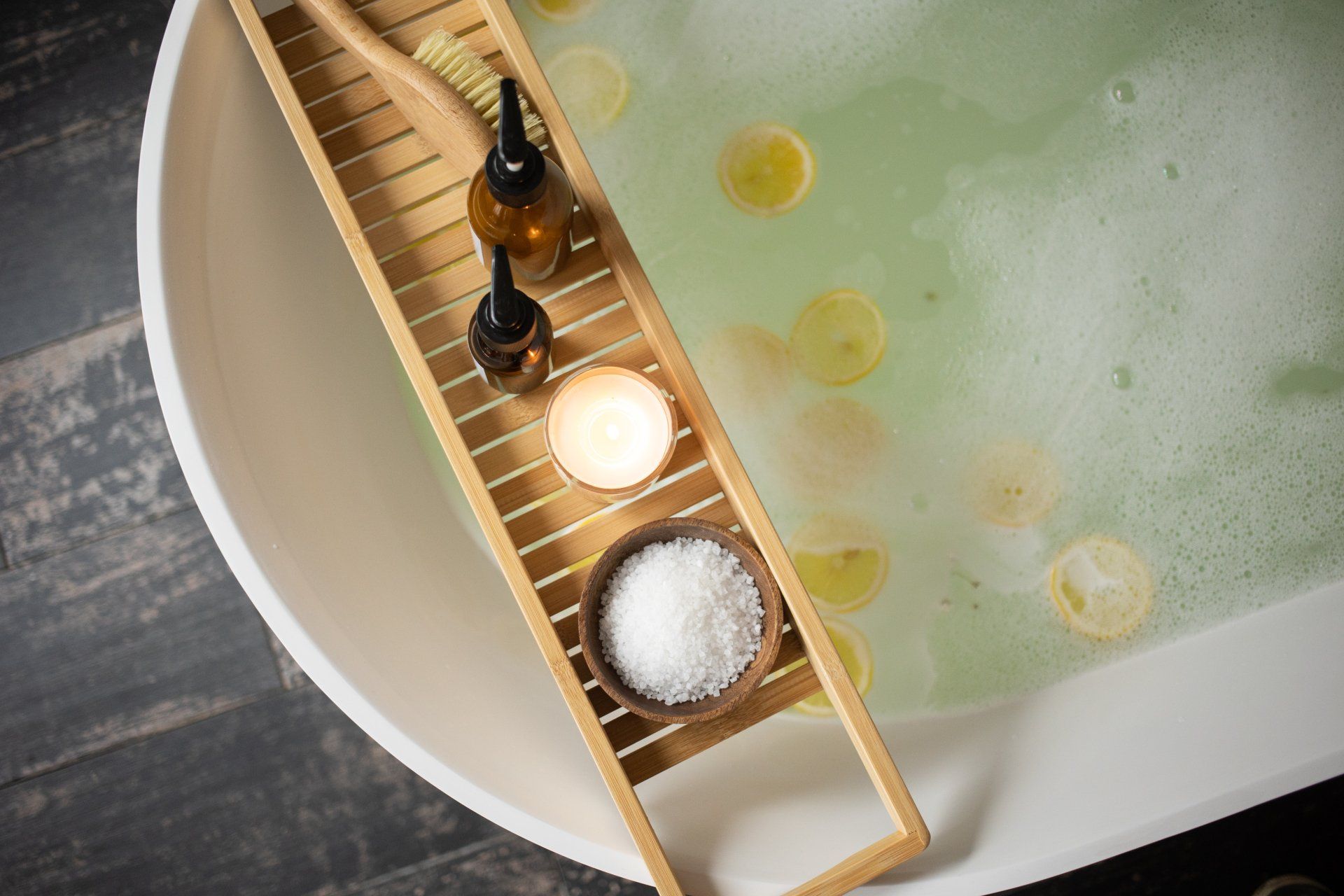
Do Water Softeners Increase Sodium Levels in Water?
Contrary to common belief, the salt used in water softeners does not directly enter your water supply. Instead, it's utilized to clean and regenerate the resin beads inside the softener tank. During the softening process, sodium ions replace calcium and magnesium ions in the water, effectively softening it.
Salt is utilized to displace the ions from the resin exchange. Once the process is complete, water passes through the ion exchange resin until no more sodium can be detected, indicated by a decrease in conductivity below a certain threshold. At this point, the water is considered safe for consumption.
Monitoring Sodium Levels:
While salt is used in the softening process, the increase in sodium levels in softened water remains within safe drinking limits. According to the Drinking Water Inspectorate (DWI), water with a sodium content of up to 200 ppm is considered safe for consumption. In most cases, the sodium content in softened water is unlikely to exceed this threshold.
How to Maintain Water Softener?
To ensure your water softener continues to operate efficiently and effectively, regular maintenance is essential. Here are some key maintenance tips to help you maintain your water softener:
1. Check Salt Levels Regularly:
- Monitor the salt levels in your water softener regularly, ideally once a month .
- Keep the salt level at least half-full to ensure continuous softening capacity.
What happens if my water softener runs out of salt?
If your water softener runs out of salt, it can't soften your water properly. Salt is really important for making your water softener work. When the tiny beads inside get full of minerals from the hard water, they need a salt bath to clean them. This process gets rid of the minerals and makes the beads ready to soften water again.
If your water softener runs out of salt, it can't clean the beads properly. So, the beads stay full of minerals, and your water stays hard. You might start noticing problems like soap scum, buildup on faucets, and soaps not lathering well.
2. Use High-Quality Salt:
- Use salt specifically designed for water softeners. You can find Water Softener Salt at HomeDepot, Canadian Tire, Costco. The brand we often use is Sifto, which cost around $10 per bag of 20kg.
- Avoid using rock salt or salt with high levels of impurities, as they can lead to salt bridging and other issues.
3. Clean the Brine Tank:
- Periodically clean the brine tank to remove any accumulated sediment or debris.
- Rinse the tank with clean water and ensure it is completely dry before refilling it with salt.
4. Check for Salt Bridges:
- Salt bridges occur when a hard crust forms above the water level in the brine tank, preventing salt from dissolving properly.
- Use a broom handle or similar tool to break up any salt bridges and ensure proper salt regeneration.
5. Maintain Proper Water Pressure:
- Ensure that your water softener is receiving adequate water pressure for optimal operation.
- Check for any blockages or leaks in the plumbing system that may affect water flow to the softener.
6. Schedule Professional Inspections:
- Consider scheduling periodic inspections and maintenance checks with a qualified water softener technician.
- A professional can inspect your system for any potential issues and perform necessary repairs or adjustments.
7. Follow Manufacturer Guidelines:
- Always refer to the manufacturer's instructions and guidelines for specific maintenance procedures and recommended salt types.
- Adhering to manufacturer recommendations can help prevent damage to your water softener and ensure its longevity.
8. Test Water Quality:
- Periodically test the quality of your softened water to ensure that your water softener is functioning properly.
- Look out for signs of hard water, such as scale buildup on fixtures or appliances, and adjust your softener settings if necessary.
By following these water softener maintenance tips, you can ensure that your system continues to provide you with soft, high-quality water for years to come. Regular maintenance not only extends the lifespan of your water softener but also helps you avoid costly repairs and ensures optimal performance. If you have any questions or concerns about maintaining your water softener, don't hesitate to contact a professional for assistance.
Get A Personalized Quote
Contact Us
Share this blog
Blog Posts
